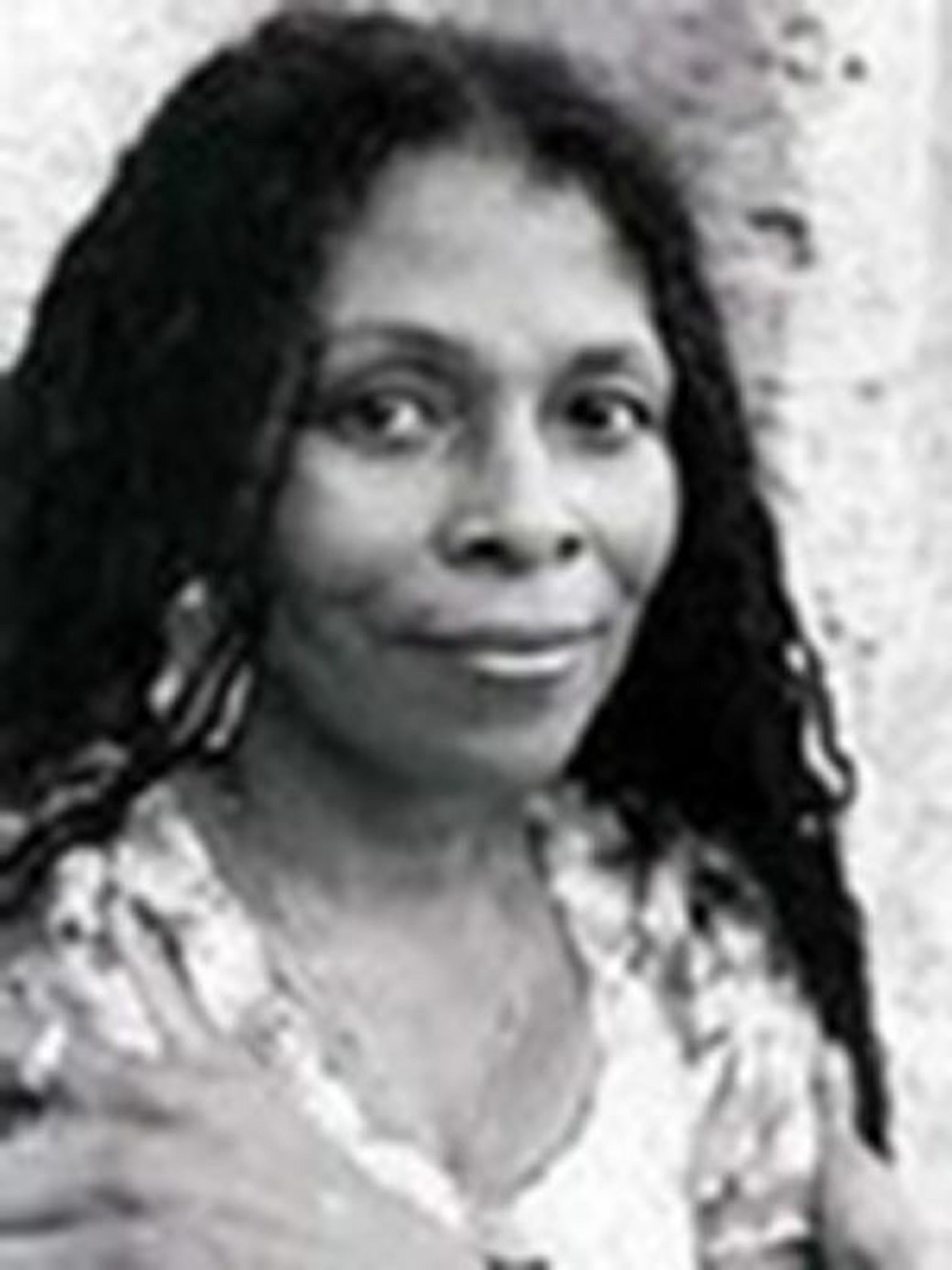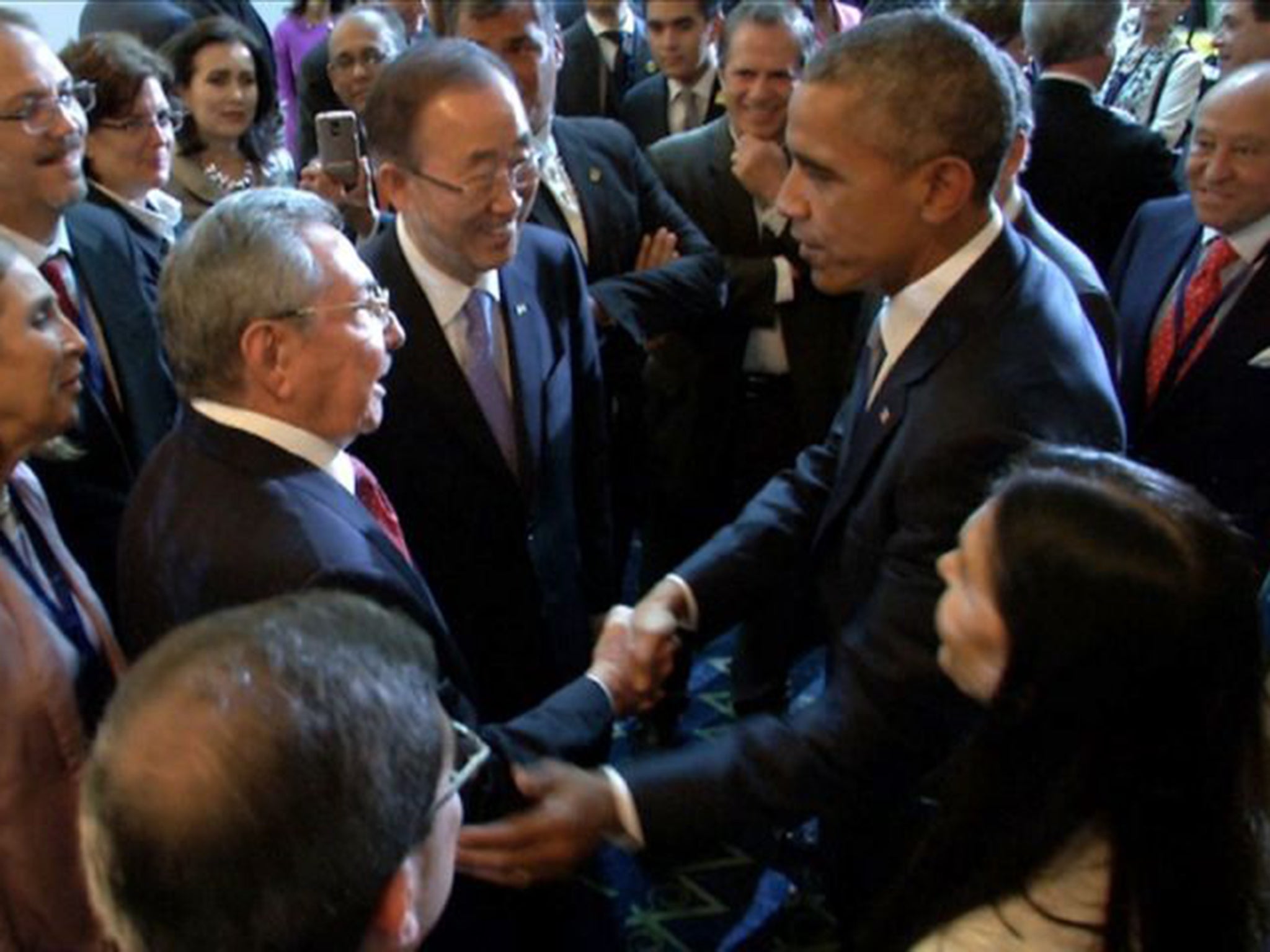Assata Shakur: Havana agrees to resolve cases of US fugitives living in Cuba, says President Obama
Former Black Panther fled to Cuba in 1984

Your support helps us to tell the story
From reproductive rights to climate change to Big Tech, The Independent is on the ground when the story is developing. Whether it's investigating the financials of Elon Musk's pro-Trump PAC or producing our latest documentary, 'The A Word', which shines a light on the American women fighting for reproductive rights, we know how important it is to parse out the facts from the messaging.
At such a critical moment in US history, we need reporters on the ground. Your donation allows us to keep sending journalists to speak to both sides of the story.
The Independent is trusted by Americans across the entire political spectrum. And unlike many other quality news outlets, we choose not to lock Americans out of our reporting and analysis with paywalls. We believe quality journalism should be available to everyone, paid for by those who can afford it.
Your support makes all the difference.A female former member of the Black Panthers who fled to Cuba to escape US justice could be at the centre of discussions between Havana and Washington to normalise relations between the two countries.
President Barack Obama said Cuba had agreed to help resolve the cases of several US fugitives living in Cuba. Among those whom Cuba has previously refused to extradite is Assata Shakur.
Ms Shakur, whose married name was Chesimard, spent time in US jails over charges relating to a shoot-out on the New Jersey Turnpike in 1973 in which a New Jersey State Trooper was killed.
A former member of the Black Panther Party and the Black Liberation Army, she was convicted of murder in 1979 and in 1984 she fled to Cuba where she received political asylum.
In a message to members of the US Congress, Mr Obama said Cuba had make clear it willingness to discuss the cases as he pushes forward with a plan to remove Cuba from a list of state sponsors of terrorism.
Mr Obama said that while Cuba has gone so far as to provide housing, food ration books and medical care to some of the fugitives, it had also cooperated on other cases and returned some suspects to the US.
“Cuba has agreed to enter into a law enforcement dialogue with the United States that will include discussions with the aim of resolving outstanding fugitive cases,” Mr Obama wrote, according to the Associated Press.
“We believe that the strong US interest in the return of these fugitives will be best served by entering into this dialogue with Cuba.”

Mr Obama’s move to remove Cuba from the terror list has been met with some opposition over the fugitives.
New Jersey’s Democratic Senator Bob Menendez and Republican Governor Chris Christie have both maintained that the terror designation should remain, especially while refusing to extradite Ms Shakur.
“It is a national disgrace that this president would even consider normalising relations while they are harbouring a terrorist murderer who belongs in prison in New Jersey,” Mr Christie, a likely 2016 presidential candidate, said in New Hampshire.
Ryan O'Regan, an associate at the Council on Hemispheric Affairs in Washington, told The Independent he believed the issue of the fugitives was not a major issue for the Obama administration but that it was something that could be used as it seeks to make its case for normalising relations.
"They would feel that Cuba is at least making some concessions," he said. "[But] what it really wants is political liberalisation."
The AP said that Mr Obama’s message to Congress provided a more detailed argument after he announced on Tuesday that he will remove Cuba from the list after the required 45 days have passed after notification.
Members of Congress could vote to block the move during that window of time, though Mr Obama would be all but certain to veto such a measure.
Cuba was designated a state sponsor of terror in 1982 because of what the White House said was its support of left wing militants in Latin America
If Cuba is removed, it will make it easer for Havana to get credit from non-US banks and to transfer funds between countries. The remaining nations on the list are Iran, Sudan and Syria.
Join our commenting forum
Join thought-provoking conversations, follow other Independent readers and see their replies
Comments